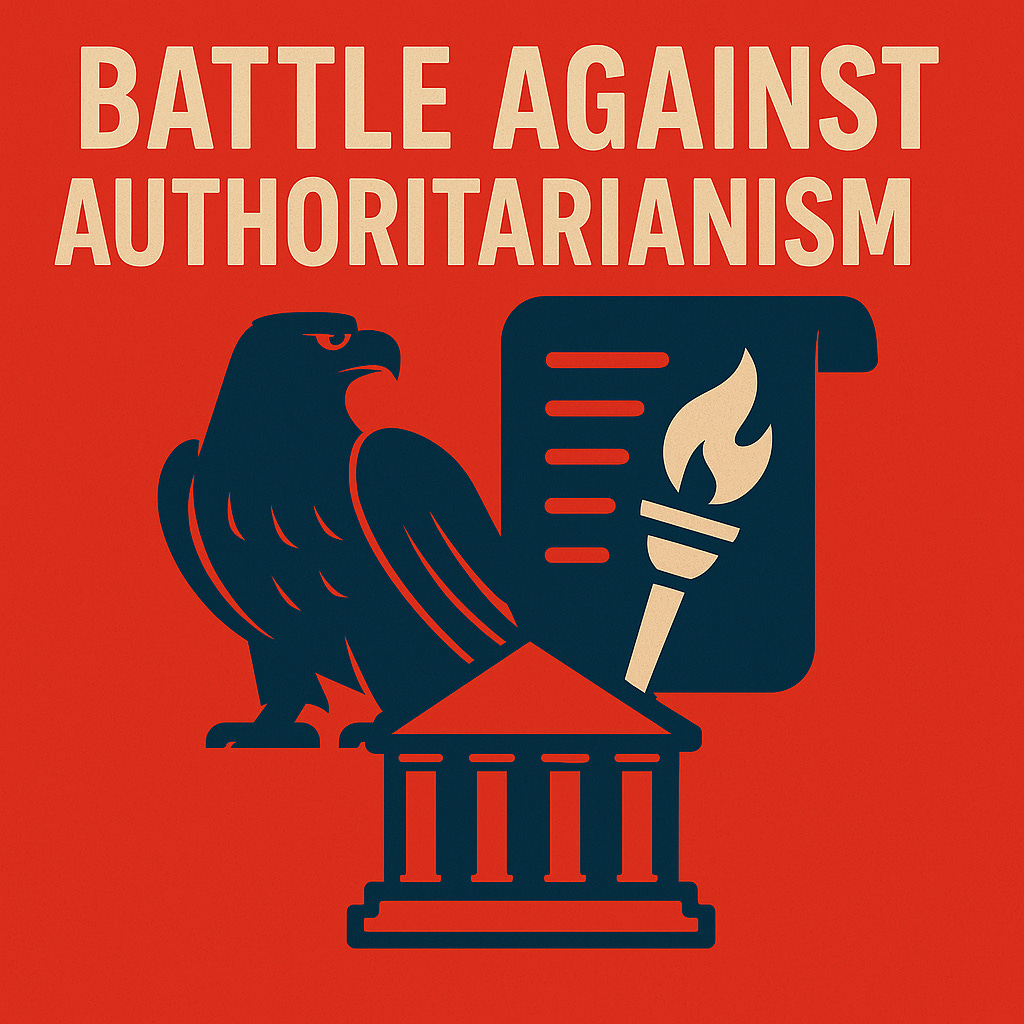🟦 Executive Overreach & Abuse of Power
A ranked guide to organizations resisting authoritarianism and defending democratic norms.
This guide lists influential progressive organizations that monitor and resist federal overreach, authoritarian decision-making, and threats to judicial independence.
These groups provide analysis, legal action, and practical tools to help citizens oppose anti-democratic executive actions, laws, and court rulings. Their websites offer petitions, legal updates, activism toolkits, and calls to contact elected officials.
About These Advocacy Group Guides: I’ve created more than 60 issue advocacy guides to help people connect with effective organizations and take meaningful action. If you’re interested in other issues, you can explore them all here: Advocacy Groups by Issue.
A nonpartisan group formed by former Obama and Bush administration lawyers to prevent American democracy from declining into authoritarianism. They focus on abuses of executive power, threats to free and fair elections, and weakening of judicial independence.
Based at NYU Law School, this research and policy institute defends voting rights, fair courts, and limits on presidential power. They’re a leading authority on executive overreach and judicial independence.
A legal organization that sues the federal government when it oversteps or acts unlawfully. They challenge authoritarian and corrupt policies through litigation and public education.
American Constitution Society (ACS)
A progressive legal organization that promotes judicial independence, rule of law, and constitutional checks and balances. ACS connects legal experts, students, and advocates.
While focused broadly on progressive grassroots organizing, Indivisible regularly mobilizes against authoritarian actions, especially executive abuses and attacks on courts. Local chapters offer in-person involvement.
The Leadership Conference on Civil and Human Rights
A coalition of more than 200 civil rights groups, this organization works to ensure fair courts, defend civil rights from executive threats, and promote judicial accountability.
An online publication and resource hub hosted by NYU Law, providing expert analysis on national security, executive authority, and the rule of law. A go-to for understanding the legal implications of authoritarianism.
ReThink Media – Courts & Legal Advocacy Collaborative
This communications hub supports progressive legal groups and coalitions that defend judicial independence and expose authoritarian threats to the courts.
Long known for exposing corruption and corporate influence, Public Citizen also works to limit executive power and defend democratic processes through litigation and public pressure.
While known for campaign finance reform, this group also leads campaigns to hold authoritarian leaders accountable, including litigation against abuses of presidential power.
Real-time policy analysis of Trump-era executive actions and political threats to democratic norms.
Top Issues in the Battle Against Authoritarianism and Executive Overreach
Attacks on Judicial Independence: Efforts to delegitimize courts, defy court rulings, or pack the judiciary with partisan actors undermine the rule of law and checks and balances. Some leaders question the authority of judges or ignore unfavorable rulings.
Disregard for Constitutional Norms: Bypassing legislative processes with excessive executive orders or emergency declarations sets dangerous precedents. This includes invoking national security or executive privilege to avoid accountability.
Criminalization of Dissent and Protest: State and federal efforts to restrict the right to protest or classify political opponents as “enemies” erode First Amendment protections and normalize repression of opposing views.
Use of Government Power for Political Retaliation: Threatening or targeting public servants, agencies, whistleblowers, or perceived opponents (judges, prosecutors, journalists) with investigations, firings, or public intimidation threatens impartial governance.
Obstruction of Democratic Transitions of Power: Refusing to accept election outcomes, promoting baseless fraud claims, and encouraging or excusing insurrection-style behavior erode public trust in peaceful transitions and democratic legitimacy.
Politicization of Federal Agencies: Attempts to turn the Department of Justice, military, or intelligence agencies into partisan tools diminish public trust and remove safeguards against abuses of power.
Executive Interference in State-Level Policies: Efforts to override or punish state actions on education, public health, climate policy, and immigration may violate federalism and undermine states’ rights under the Constitution.
Undermining of Government Watchdogs and Oversight: Firing inspectors general, blocking congressional oversight, and refusing subpoenas weaken transparency, accountability, and legal checks on executive power.
Spread of Disinformation from Positions of Power: Authoritarian regimes often rely on falsehoods to maintain control. When leaders in the U.S. use their office to spread lies or discredit facts, it creates confusion and undermines civic trust.
Normalization of Authoritarian Language and Behavior: Statements glorifying dictators, advocating violence, or dehumanizing groups can desensitize the public and lay a rhetorical foundation for authoritarian action.
Share. If you find this resource helpful, please share it with friends.
Subscribe. Get new posts from Plainly, Garbl delivered to your inbox.


